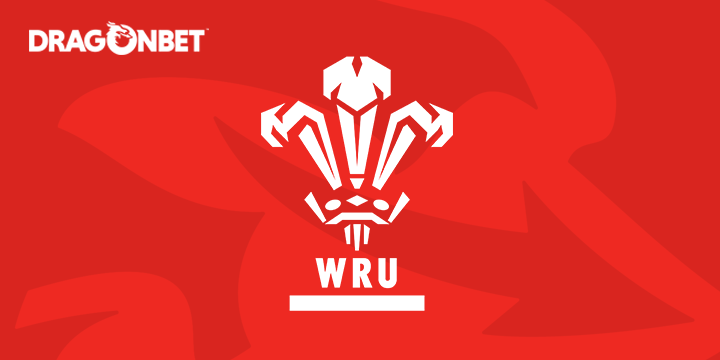By Jake Maddaford
It’s the day football fans across Europe have been waiting for since the domestic leagues ended – the start of Euro 2024.
With it, comes so much to look forward to and debate. Who will win the tournament? Who will be top scorer? Who will be the competition’s best player?.
Now that we have all the squads in, we have an idea of how certain teams will play, so let’s have a closer look at the groups.
Group A – Germany, Scotland, Hungary and Switzerland
Before this tournament, fans’ expectations in Germany weren’t high. Since winning the World Cup in 2014, Germany’s form in major tournaments has taken a nosedive.
They were knocked out of both subsequent World Cups and went out in the group stage and in the round of 16 in the last two Euros.
Scotland will be the team most Welsh fans would far rather see go deep into the tournament, rather than England. After qualifying from a tough group containing Spain and Norway, the Tartan army go to Germany with confidence of being able to get out of the group.
Despite getting knocked out of the last Euros at the group stage, finishing bottom and only scoring once, it feels like there is something different about this Scotland side and that they’re better prepared for this one.
Hungary’s rise on the international stage has been surprising yet impressive, recently going on a 15-match unbeaten streak that has seen them rise from 53rd in the world in 2019, to now 26th going into this tournament.
Having Liverpool star Dominik Szoboszlai at their disposal around what is a well-coached team under Italian coach Marco Rossi, they have every right to feel confident of getting out of this group.
Switzerland are a mainstay of international football, qualifying for seemingly every tournament, and are capable of causing upsets. In the last tournament, they knocked out then world champions France on penalties, and reached the quarter finals before losing to Spain in the same fashion.
While this squad is ageing, having the likes of Xhaka, Akanji and Yann Sommer, who have been constants in this team for some time and who are all domestic champions this season, you can’t bet against them falling short surely?
Group B -Spain, Croatia, Italy, Albania
Spain are in most people’s top three when it comes to this year’s competition. Boasting a mix of young talents, such as Pedri, Nico Williams and 16-year-old Lamine Yamal, as well as experienced proven winners like Rodri and Carvajal, they appear strong.
This could be the tournament where it all comes together for La Roja, and at 8/1 odds, you could be in for a healthy return.
Croatia have an argument for being the biggest overachievers in international football. Reaching a World Cup final and semi-final in the last two editions of the competition underlines that status.
Having Luka Modric in their team will always give them a chance – a captain who has been in high pressure scenarios for the last decade at Real Madrid, he gives them someone to turn to if they are in need.
Given their ability to get big results against big teams, such as England and Brazil in the World Cup, they should be able to translate that into this tournament.
Despite being the holders, Italy have a look that suggests they could be that one major nation that flops on the big stage.
Failing to qualify for the last two World Cups, but beating England on penalties to win this competition leaves an air of uncertainty as to which Italy will turn up.
They’re currently sixth favourites according to DragonBet at odds of 16/1 to retain their title. Spain are the only team to win back-to-back European Championships, and Italy will have hopes of doing the same this summer.
Albania have been given the hardest task in the entire tournament, being drawn in a group with three of the biggest countries in recent years.
Although they did top their group, containing the Czech Republic and Poland who are both better on paper than them, so they have the potential to cause a massive upset and sneak their way out.
Group C – England, Serbia, Denmark, Slovenia
England’s form leading up to this tournament hasn’t been great, no more evident than losing at home to Iceland in their last warm up match.
But no-one can deny the talent at their disposal is one of, if not the best collection at this competition. From proven winners in defence like Kyle Walker and John Stones, to world class forwards such as Jude Bellingham and Harry Kane, could it actually come home this summer?
Serbia are appearing at their first ever European championships this summer, and their depth is arguably the second best in this group.
A squad littered with names English football fans will remember, the likes of Tadic and Mitrovic both coming off impressive individual campaigns, with stars such as Kostic and Milinkovic-Savic to back them up, you would not be surprised to see them make it out of here.
Demark were everyone’s second team in the last tournament after the tragic collapse of Christian Eriksen, but this is a squad that has mostly stayed the same this last three years.
With a few new names in their squad, such as Rasmus Hojlund, it is doubtful whether that will be enough to take them out of this group.
Slovenia are appearing at their first Euros since 2000, and boast a largely unknown squad, but with a few familiar names.
Jan Oblak is regarded as one of the best goalkeepers in the world, Benjamin Sesko has had interest from many Premier League clubs, and Josip Ilicic’s return to the side is sure to be one of the best stories to come out of this tournament.
Can this side pip the others to qualification out of this group?
Group D – France, Netherlands, Austria and Poland
Euro 2016 finalists, 2018 World Cup winners and runners-up four years later – international teams don’t come much bigger than France.
That said, they exited the rearranged 2020 competition in the last 16 following a penalty shootout loss to Switzerland, and head to Germany with only two wins in their last five – a run that includes a friendly defeat to the tournament hosts.
France have the individual quality to top Group D. A potential quarter-final against Belgium will be a serious test of their credentials, but anything less than a semi-final appearance will be considered a disappointment.
The Netherlands have fond memories of major tournaments on German soil. They reached the 1974 World Cup final, before going one better in 1988, hopping back home over the border as European champions. Injuries to key men Frenkie de Jong and Teun Koopmeiners have rocked the boat, but the Oranje remain among the competition’s dark horses.
Austria lost only once in qualifying, finishing second – a point behind Belgium – in Group F. A Bundesliga-heavy contingent certainly won’t be fazed by the prospect of facing France & Co. in Germany.
After finishing third in their qualifying group, Poland scraped past Wales on penalties to reach the tournament proper. Worrying for them, talisman Robert Lewandowski is expected to miss their opener against the Netherlands.
Group outsiders, Poland know they need that bit of luck to have any chance of progressing.
Group E – Belgium, Ukraine, Slovakia and Romania
The Red Devils are at their seventh Euro finals and got to Germany on the back of an unbeaten qualifying campaign that saw six wins and two draws in which they scored 22 goals and conceded only four. Belgium have often been among the favourites going into recent major tournaments and are again up there in 2024.
Belgium have boasted some fine players in recent years. Think back to new Bayern Munich coach Vincent Kompany, Eden Hazard, Dries Mertens, Thomas Vermaelen and goalkeeper Thibaut Courtois – who isn’t in the squad after a falling out with Tedesco and only just returning from a cruciate ligament injury – but that ‘golden generation’ failed to win a trophy. De Bruyne and Lukaku are the last of that group and perhaps going into their last international tournament, so it’s likely now or never.
Romania were one of the surprise packages of European qualifying, finishing ahead of Switzerland in Group I thanks to an unbeaten campaign. It’s the country’s sixth appearance at the Euros, although their best finish was the quarter-finals in 2000, coming six years after they got to the same stage at the FIFA World Cup
People in Slovakia believe their team can make some waves this summer. They’ve only conceded 16 goals in as many games under Calzona, keeping six clean sheets. Also boasting an experienced core that includes current and ex-Bundesliga players in Ondrej Duda, Peter Pekarík, László Bénes and Matúš Bero, they will believe they can at least get into the knockout rounds.
Ukraine made it through the play-offs against Bosnia and Iceland, netting an 84th-minute winner in the final against the latter to qualify for a fourth straight Euros finals and give the people back home something to get excited about in tough times.
Group F – Turkey, Georgia, Portugal, Czech Republic
Turkey were many people’s dark horses for the last Euros because of their impressive qualifying campaign, but they froze once there.
This squad is more talented but heads to Germany in wretched form, having lost to Hungary, Austria and Poland since March. Open their campaign against newcomers Georgia and must take maximum points.
Georgia may have qualified through the backdoor via the UEFA Nations League, but they won’t care.
They are at a major tournament for the very first time. Very little is expected from the worst team at this Euros, but that will suit them perfectly as they seek to cause a stir and make it out of a group featuring beatable opponents in Turkey and the Czech Republic.
No team has reached the knockout stages in consecutive editions of the Euros more times than Portugal, who have made it out of the group stage at every tournament since 1996.
Plenty of people see the 2016 champions as the likely winners this year as well, owing to an incredible squad that seems to have the ideal blend of youth and experience. Score goals for fun.
Euros regulars the Czech Republic will have been pleased to land in Group F alongside Turkey and Georgia.
Five wins on the bounce show they are bang up for it, but their preparations were hit last week when midfielder Michal Sadílek dropped out the squad after an injury sustained by failing off his tricycle a day after captaining the Czechs in a 7-1 win over Malta.
So, that’s it. It looks open, with no outstanding team that boasts proven recent success.
Take your pick and pwb luc!
















